Politics
Peroas and Karamurus: Vitoria’s Political-Religious Enmity Turned into “Fla-Flu”
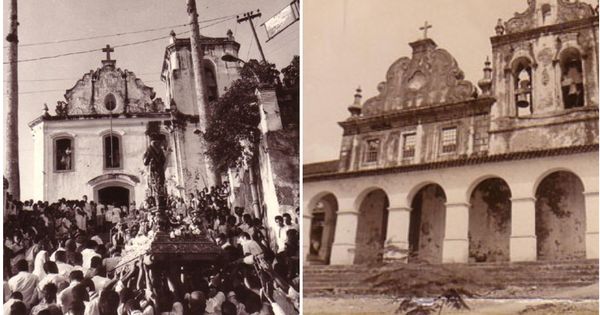

Between 1833 and 1901, the inhabitants of Vitoria experienced a violent climate of “fla-flu”, one of the most persistent conflicts in the history of Espirito Santo. Driven by the devotion of San Benedito, the inhabitants of the capital at that time split into two groups: the peroa, who met at Igreja do Rosario in the lower part of the capital; and their opponents, the Karamuru, who attended Mass at the San Francisco Convent in the Upper City.
The brawl, which was initially over a controversy over who would post the image of San Benedito, was taken seriously and influenced clothing, music, culture and even local politics. Members of the Conservative Party, which supported the empire and the slave system, sided with the Karamuru, who represented the wealthier classes in the city.
The Liberal Party, on the other hand, adhered to republican ideals and advocated the abolition of slavery, sided with the poorest inhabitants of Peroa, many of whom were still slaves. Despite this preliminary definition, there were some exceptions, both rich people from the Peroa and poorer people who stayed with the Karamuru.
The rivalry was such that on several occasions it actually came to a fight with physical aggression between the two groups. There are reports of simultaneous processions of two brotherhoods that met along the way and turned the religious district into a battlefield. In fact, the terms karamuru and feathera, fish of little commercial value at the time, were used by adversaries on either side as a way to provoke rivals.
Historian Fernando Aciame says that in the early years of the fight, when it was more intense, there was no one who remained neutral without choosing a side. Green flags were flown in the houses of the city of Karamuru, and the feathers adopted blue as the color of their brotherhood. Religious clothing also matched the colors of each group.
The Peroas, who took refuge in Igreja do Rosario, nicknamed their enemies caramurus because of the greenish color of the fish, which resembled an eel, and because this animal was considered aggressive fishermen who made up the majority of the free workers. in Vitória. during that period. Caramurus, on the other hand, used the term peroá derogatoryly to refer to their enemies, as it is a bluish fish and is often despised in fishing.
“The ancients said that the ladies of Peroa wore the blue robes of their party on holidays, but wore green shoes or slippers. When asked why they did this, they replied that they had stepped on their opponents. The opposite has been done to the women from the Karamuru faction – green dresses but blue shoes, ”says Achiame.
Santo’s “abduction” was the beginning of brightness
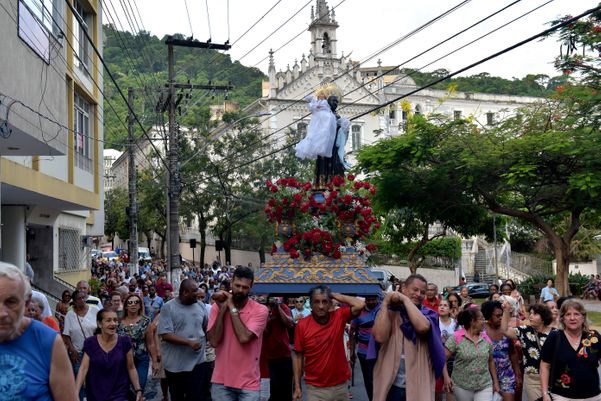
San Benedito, a Franciscan monk of black descent, canonized in Europe, had great devotion among the capixabs, especially among the African peoples who were enslaved. In a nineteenth-century shipwreck off the coast of the state, survivors who were rescued by clinging to the mast of the ship considered the saint’s protection a miracle in this episode. This is where the traditional binding of a mast in honor of a monk originated.
The San Benedito festivities, celebrated on December 26, were one of the main events in the capital, during which a procession was held to carry the saint from the San Francisco convent to the lower part of the city. The Brotherhood of San Benedito, made up of believers, organized the entire celebration.
However, in 1832, on the day of the festival, the city had a rainy climate, so the monk Manoel de Santa Ursula, who was then in charge of the monastery, did not allow the image of San Benedito to be taken to the procession. Some members, dissatisfied with the monk’s decision, tried to dissuade him, but to no avail.
A few days later, when he learned that the brotherhood was criticizing him, the monk ordered all the items of the group to be thrown out the window of the monastery and locked the image of St. Benedict in a cell. It was from there that some members began to gather in the church of Nossa Senhora do Rosario in the lower part of the city, where they founded a new brotherhood.
In 1833, when the monk Manoel de Santa Ursula left Espiritu Santo, the new monk took over the monastery and released the image of San Benedito, which was replaced on the altar. However, in September of that year, a new brotherhood formed in Igreja do Rosario kidnapped the saint so that he could remain in the lower part of the city.
As members of the old brotherhood, those who continued to attend Mass in the San Francisco convent, also declared this image, a feud began that lasted until 1901, when the Archdiocese of Vitoria, led by Dom Fernando Monteiro, brother of Geronimo Monteiro, determined the end of the procession of brotherhoods. …
During the entire period of their existence, when quarrels became more and more frequent, it was decided that for six months a year the image would remain in the monastery, the stronghold of the Karamurs, and the rest of the year in the church where the feathers met.
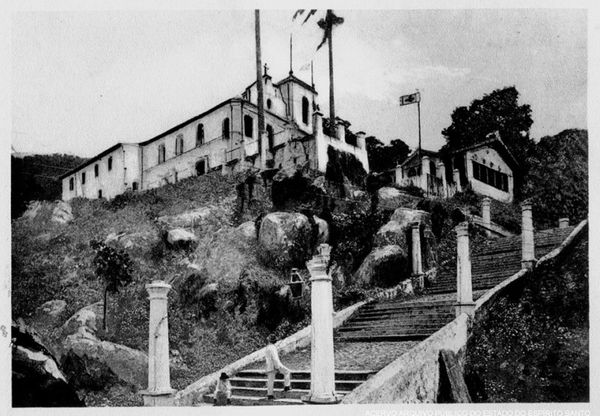
REDUCTION OF SLAVERY “UNIU” PEROÁS E CARAMURUS
According to historian Fernando Aciame, there are records that the two fraternities entered into a truce and made peace on May 13, 1888, during celebrations dedicated to the abolition of slavery. While conservatives (predominantly among the Karamurs) and liberals (mainly among liberals) stood for the end of slavery.
“During the Empire, the Karamura were identified with the conservatives, and the feather with the liberals, but it must be borne in mind that at that time many people did not have access to the vote. In addition, the political system was very centralized. Achiame.
With the beginning of the republic, political divisions between the two groups began to fade. However, the religious dispute, although much less aggressive than during the imperial period, continued for several more years.
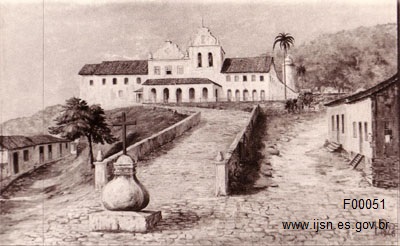
“After the proclamation of the republic, the differences have subsided somewhat. Compared to the current reality, it was like a family that supports the same football team, but its members can make their political choices in different ways, ”he compares.
In sport, fraternities also influenced the creation of two regatta clubs, as rowing was the most popular sports category at the time. Karamur boats were painted green, and feather boats were blue. During the debates, fans also painted themselves and raised flags.
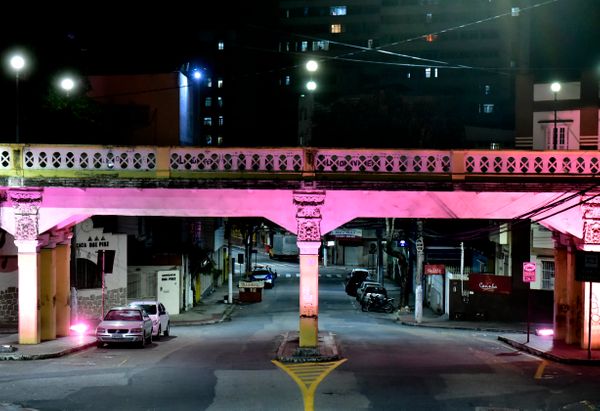
INHERITANCE
More than a century after the end of the feud, the greatest legacy left from the controversy is the name given to the viaduct, built in 1927, which stands today in the upper part of Vitoria. The Karamuru Viaduct was named after the San Francisco Convent, the former seat of the brotherhood.
According to political scientist and historian João Gualberto Vasconcellos, the historical dispute between the peroás and the caramurus reflects the social inequality that characterized the city at a time when the majority of Vitoria’s inhabitants consisted of enslaved people, freedmen and their descendants.
“The dispute was a relic of a traditional society, which was organized mainly from religious myths. It is a dispute about the sacred, which determine the social order, on the one hand, those who have property during life, and on the other hand, the poorest. the fight escalated to the point that there was even an exchange of aggression. People left the house, ready to fight, “- emphasizes Vasconcellos.
LEARN MORE ABOUT ES HISTORY

General internet buff. Hardcore music maven. Typical foodaholic. Friendly student.
Politics
The dollar continues to reflect the political scenario

Yesterday, financial agents evaluated the opposite decision of the Federal Supreme Court (STF) regarding the so-called secret budget. In addition, a decision was made by STF Minister Gilmar Méndez to issue an injunction that would exclude the Bolsa Família from the spending cap rule, with investors trying to understand how this measure would affect the processing of the transitional PEC in the Chamber of Deputies. Oh this PEC!!!!
Since he is an exchange investor, any reading that the budget will be exceeded or become more flexible will negatively affect the exchange market, whether through the PEC or in any other way. We will continue with volatility today.
Looking beyond, the US Central Bank (Fed), although slowing down the pace of monetary tightening at its December meeting, issued a tougher-than-expected statement warning that its fight against inflation was not yet over, raising fears that rising US interest rates will push the world’s largest economy into recession.
The currency market continues to react to political news. The voting on the PEC is saved for today. It is expected that it will indeed be reviewed to open the way tomorrow for discussions on the 2023 budget.
For today on the calendar we will have an index of consumer confidence in the eurozone. Good luck and good luck in business!!

General internet buff. Hardcore music maven. Typical foodaholic. Friendly student.
Politics
Andrés Sánchez consults with the Ministry of Sports, but refuses a political post.

The former president of the Corinthians dreams of working for the CBF as a national team coordinator. He was consulted shortly after Lula’s election.
Former Corinthians president Andrés Sánchez was advised to take a position in the Ministry of Sports under the administration of Lula (PT). However, he ruled out a return to politics. dreams of taking over the coordination of CBF selectionHow do you know PURPOSE.
No formal invitation was made to the former Corinthian representative, only a consultation on a portfolio opportunity with the new federal government, which will be sworn in on January 1, 2023.
Andrés was the Federal MP for São Paulo from 2015 to 2019. At that time he was elected by the Workers’ Party. However, the football manager begs to stay in the sport, ruling out the possibility of getting involved in politics again.
Andrés Sanchez’s desire is to fill the position of CBF tackle coordinator, which should become vacant after the 2022 World Cup. Juninho Paulista fulfills this function in Brazil’s top football institution.
The former president of Corinthians was in Qatar to follow the World Cup along with other figures in Brazilian football. During his time in the country, he strengthened his ties with the top leadership of the CBF.
Editors’ Choice

General internet buff. Hardcore music maven. Typical foodaholic. Friendly student.
Politics
The EU has reached a political agreement on limiting gas prices – 19.12.2022

The agreement was approved by a supermajority at a ministerial meeting of member states in Brussels, Belgium, after months of discussions about the best way to contain the rise in natural gas prices in the bloc caused by Russia’s invasion of Ukraine. .
The value set by the countries is well below the proposal made by the European Commission, the EU’s executive body, in November: 275 EUR/MWh. However, the countries leading the cap campaign were in favor of an even lower limit, around 100 EUR/MWh.
Germany, always wary of price controls, voted in favor of 180 euros, while Austria and the Netherlands, also skeptical of the cap, abstained. Hungary, the most pro-Russian country in the EU, voted against.
The instrument will enter into force on 15 February, but only if natural gas prices on the Amsterdam Stock Exchange exceed 180 euros/MWh for three consecutive days. In addition, the difference compared to a number of global benchmarks should be more than 35 euros.
Italy, the EU’s biggest supporter of the ceiling, has claimed responsibility for the measure. “This is a victory for Italy, which believed and worked for us to reach this agreement,” Environment and Energy Minister Gilberto Picetto tweeted.
“This is a victory for Italian and European citizens who demand energy security,” he added.
Currently, the gas price in Amsterdam is around 110 EUR/MWh, which is already a reflection of the agreement in Brussels – in August the figure even broke the barrier of 340 EUR/MWh.
However, Russia has already threatened to stop exports to countries that adhere to the ceiling. (ANSA).

General internet buff. Hardcore music maven. Typical foodaholic. Friendly student.
-
World4 years ago
The Gabby Petito case. Brian Landry set up camp with his family after his girlfriend disappeared
-
Top News5 years ago
Tristan Thompson reacts to Khloé Kardashian’s new appearance
-
Economy3 years ago
Everything has been delivered. 10 Bugatti Centodieci are already in the hands of the owners
-
Top News5 years ago
TLC ‘sMothered’ recap: ‘Party curled up,’ boyfriend problem
-
Top News5 years ago
Alex Cooper hosts a solo podcast
-
Top News5 years ago
2021 Ford Bronco price: Here’s how much the 2-door and 4-door cost
-
Tech5 years ago
Fall Guys is supplying out a legendary costume and Kudos as an apology present
-
Top News5 years ago
Chiara de Blasio was ‘very cold’ during the arrest of the protest: witness









